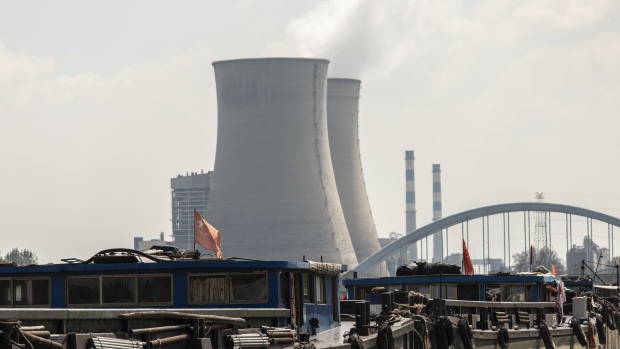May 20, 2022
China Carbon Market Has New Woes With Prices Already Flatlining
, Bloomberg News

(Bloomberg) -- China’s beleaguered carbon market is facing more delays getting emissions allowances, as it struggles to resolve data fraud problems.
The Ministry of Ecology and Environment has postponed the release of the latest batch of permits to the second half of the year, according to people familiar with the matter, who asked not to be identified due to the sensitivity of the issue.
While there had been no official timeline for the release of the allowances, traders had been been expecting those permits by June. Allowances are allocated partially retrospectively, and the latest tranche will cover the two-year period through the end of 2022.
The ministry didn’t respond to a faxed request for comment.
The carbon market has been plagued with problems even before its launch in the middle of last year, which was delayed several times. Trading has mainly been lackluster, and volumes have been particularly thin this year. The carbon price closed unchanged at 58 yuan a ton on Thursday for the 11th session in a row. Beijing’s decision to prioritize coal use in response to energy shortages also appears to have blunted the market’s development.
Only around 2,200 power companies are currently required to be in the market. A plan to add large aluminum and cement producers -- which was originally supposed to happen this year -- may not take place until 2023, a researcher who helped design the market said in March.
See also: Designer of China Carbon Market Sees Expansion Being Delayed
Market participants are mainly staying on the sidelines, given the new allowances are yet to be issued and the details of the next compliance period are still unclear, said Qian Guoqiang, vice general manager of consultancy SinoCarbon.
Provincial inspections earlier this year found widespread problems with the emissions data submitted by power plants, who have to pay for every ton of carbon dioxide they generate that exceeds an allocated amount. Four consulting firms that help utilities prepare their submissions were also criticized in connection with negligence or falsifying data.
See also: China’s Weak Carbon Market Hits a New Roadblock -- Data Fraud
The unfinished data fraud rectification work, the delays in adding more industries, and the long waiting period before the next compliance deadline have led to the recent muted trading, said Wang Jun, a carbon analyst and author of the book “The Carbon Neutrality Era”.
“The top priority of authorities now is not activating the market, but to resolve the data fraud,” he said.
©2022 Bloomberg L.P.






